Ukraine callingZoot ShootsZZ
Stitching peace of mind
Saving lives through threads of tradition and resilience
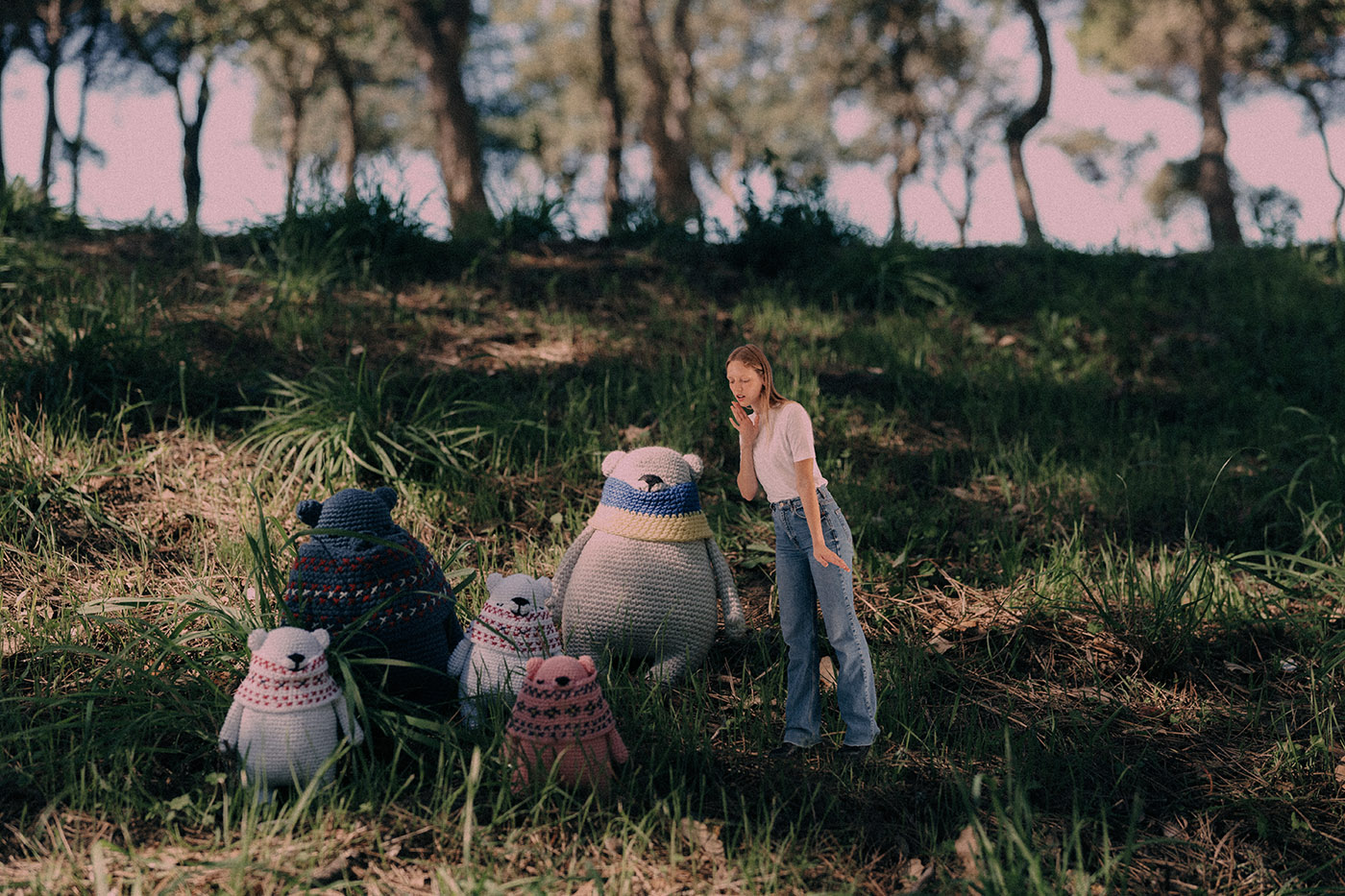
By crocheting bears that draw inspiration from Ukraine’s cultural heritage, AMOAMI supports refugee women from Ukraine in finding strength, and a sense of purpose. It offers a way for these women to heal and express themselves creatively. In addition, it highlights a sustainable approach and a commitment to the well-being of refugees scattered across Europe.
Crative direction and beauty Antonia Rosa
Photography Joana Linda
Production assistant Kelly Bernardo
Model Maryana Tsyutsyk at Just Models
Words and interview Kelly Bernardo
The story of Amoami begins with Rafael J. Alcaide, the brand’s co-founder, who encountered a group of Ukrainian women and children at Madrid airport in March 2022. Moved by their plight, Rafael was determined to make a difference. In April 2022, Amoami was officially established as a project which primary mission was to unite Ukrainian women and foster a peaceful struggle for freedom and tranquillity.
Amoami’s method draws on Ukraine’s cultural heritage of sewing, crocheting, and embroidery. These are traditional skills that are passed down through the years. The Vyshyvanka, a symbol of Ukrainian clothing and culture, stands out. It’s made by hand and decorated with detailed embroidery, demonstrating regional differences in sewing methods, designs, and patterns. Ukrainian crocheting stands out for its meticulousness and fine details. As for embroidery, this method holds immense cultural significance in Ukraine and is regarded as a prominent art form. Vibrant colours, elaborate patterns, and symbolic motifs characterize Ukrainian embroidery. Different regions boast unique styles, stitches, and designs representing specific traditions and beliefs.
This special collaboration between ZOOT and Amoami, features Maryana, an Ukrainian model who has called Lisbon her home since the age of six when she moved here with her family in 2004. This unique production is celebrating the rich Ukrainian tradition of embroidery and craftsmanship. Photographer Joana Linda and our creative director Antonia Rosa, spin a fantasy story around the crochet bears and humans, living together in peace and tranquility. Bears and humans become a family instead of a threat to each other.

Our model Maryana about how she felt during the first days of the Russian invasion…
I found out about the invasion when my mom woke me up to inform me at 7am on the day it happened and I was distraught. Not knowing if your family is okay and not being able to contact them was terrifying. I remember I went to uni that morning and I spent the whole day anxiously crying. The following weeks were the same. Throughout the war, I tried to spread accurate information on what was happening in Ukraine with my friends and my followers. We (my parents and brother) were supposed to go to Ukraine when Covid hit and then we were meant to go last year. My mom travelled to Ukraine in July to help our family and on the second day there, she made a video call from inside the closet because the air alert sirens were wailing and that was hell. I miss my country very much and I can’t wait to return and see it as beautiful as I remember after we win this war. Слава Україні!
* Mariana is Ukrainian born but living with her family in Lisbon since 2004, she moved when she was six years old.
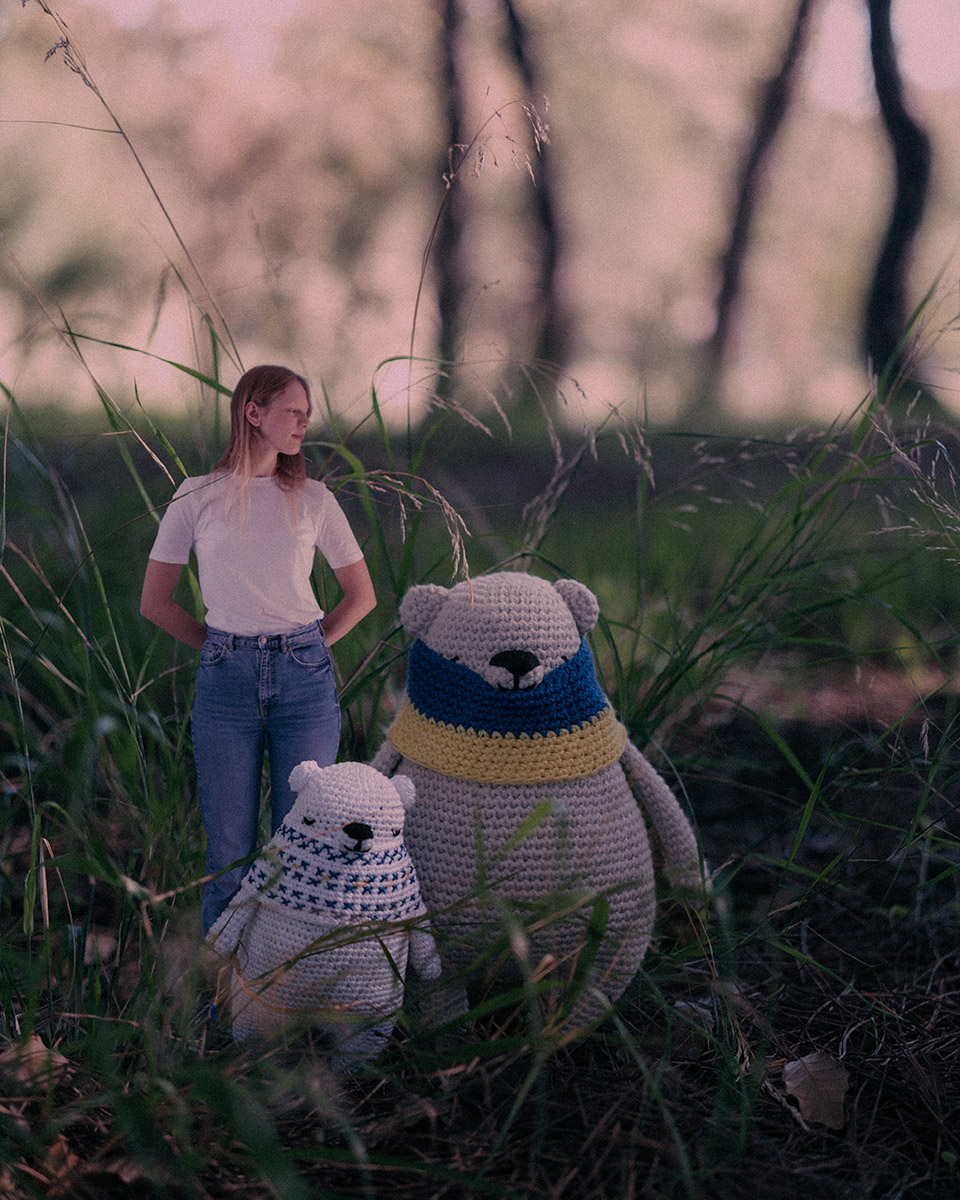
For the scarf embroidery on the bears, Amoami draws inspiration from the Vyshyvankas, replicating their designs into a unique scarf for each bear. The embroidery might include Bukovynian, Poltava, and/or Boyko styles, each with distinct features. The embroidery used in each bear is completely optional, with the choice depending on the lady/crafter and her regional background. Rafael is pointing out:
Each bear is unique, and the crafters are free to make their favourite, representative motif. Depending on the lady/crafter and her origins, they imprint a different embroidery motive and use a technique which might be unique to the place they come from.
With this strong sense of society and, in many ways, means to create a tribute to the aches of Ukrainian people, the Amoami bears symbolize resistance. Crochet designer Rita Ruiz collaborated with Rafael to create the bears, incorporating Ukrainian inspiration into each stitch.
The design of the bears is inspired by the Vyshyvanka shirts since these represent a powerful symbol of Ukrainian culture. Amoami represents the strength and determination of Ukrainian women who have endured pain, loss, and sorrow. Each bear is meticulously crafted with 100% fine quality cotton, hypoallergenic stuffing, and later wrapped in a biodegradable, reusable jute bag.
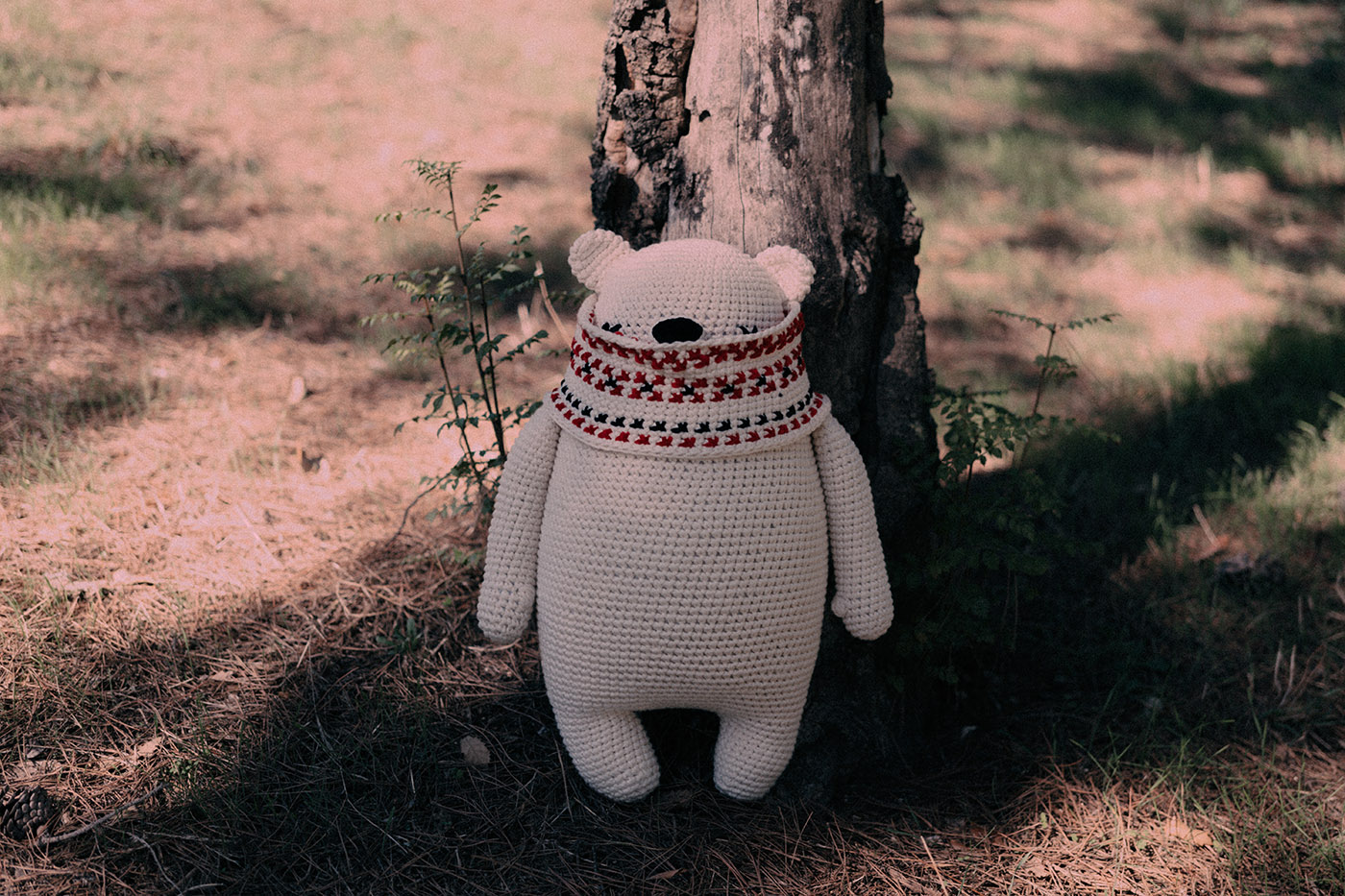
ZOOT catched up with Rafael by email to conduct the interview below.
♦♦♦
ZOOT: Can you explain where does the name Amoami come from?
Rafal J. Alcaide: The name AMOAMI came out during a hike with an Ukrainian refugee and another friend, near El Escorial, Madrid. We were brainstorming and came up with AMOAMI for many different reasons: 1. It includes the word AMO (in every single latin language, is LOVE) + AMI (Amigurumi which is the technique we use, and also AMI from AMIGO, AMI, AMICO…). 2. We think it resembles maternal love and care, and it’s loyal to the minimalistic approach we have following the Japanese origin of the crochet technique. All the branding and graphic design has been made by Onss Mhirsi.

ZOOT: Can you tell us a bit about your background and integrates? What inspired you to take on this project?
Rafal J. Alcaide: I’ve worked in consulting, International organizations and supply chain for some years and lived in seven different countries. I founded Amoami because I wanted to do something with a meaning for the community of Ukrainian refugees. I thought everybody was really focused on what was happening in Ukraine which was great and admirable, but i wanted to look at what was going on with the people who had left everything behind. One evening in March 2022 I landed in Madrid airport from a trip and saw hundreds of women with children who had just arrived as well in Spain… I saw the devastation in their eyes and the sense of frustration and uncertainty they had, and it really shocked me. It was happening on European soil, and we had to do something. I was not going through my best personal moment and this project became my therapy.
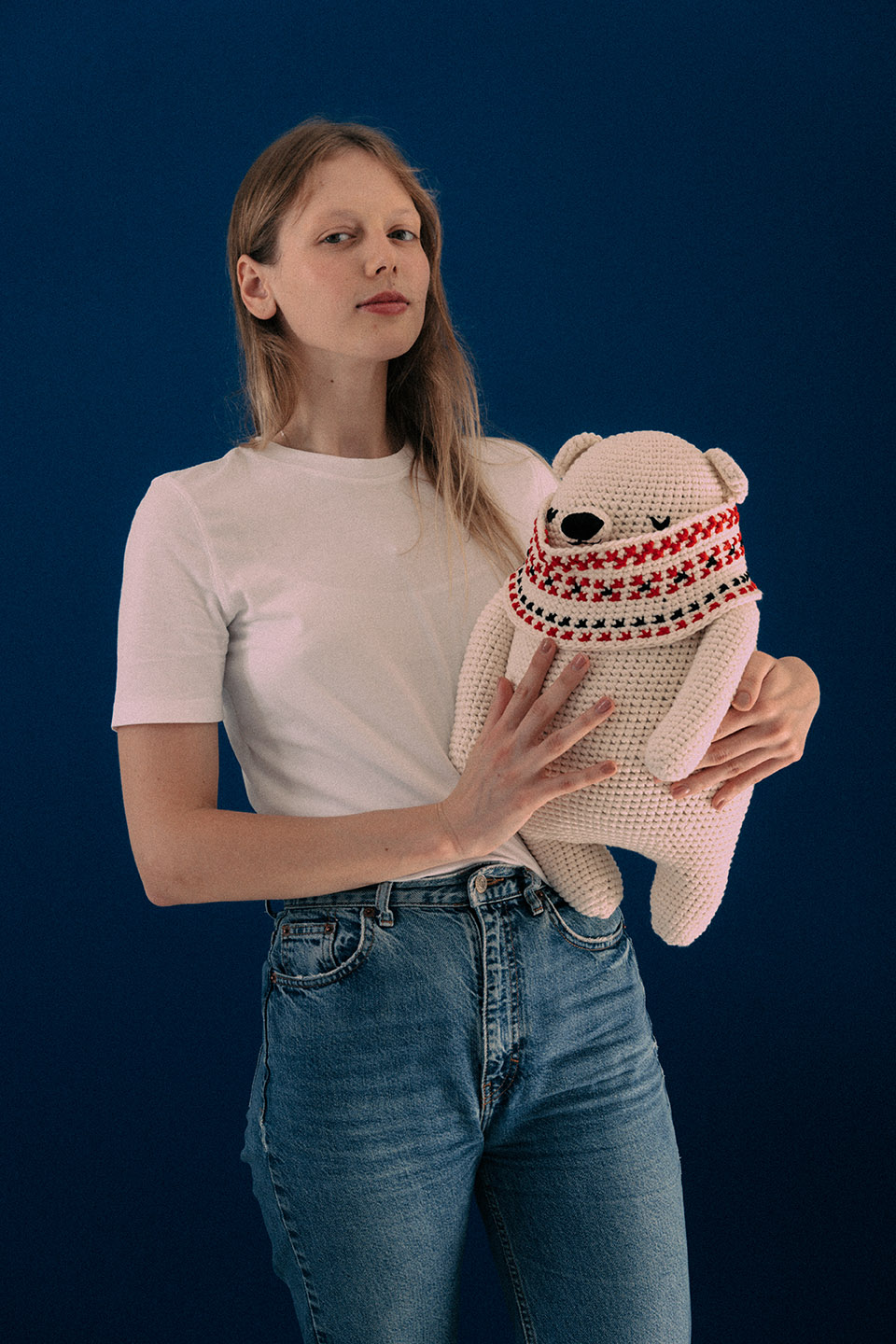
I think Amoami is a very honorable initiative as they support refugees and give them peace of mind (even if it’s for a little bit), all while creating very adorable amigurumis. Working with Amoami makes me feel like I’m contributing to this project and a bit closer to home.
— Maryana, model
ZOOT: Where did the idea of crochet plushies come from? And why a teddy bear?
Rafal J. Alcaide: I grew up seeing my grandmother making incredible things by crochet and I was always fascinated by how she made it. When I was a student I used to live in a really large apartment in the middle of iconic Gran Via (Madrid) with 6 other close friends (Rita Ruiz was one of them). We would spend our evenings and weekends all together, eating, drinking, and playing music by the terrace we had, while she would crochet and crochet and make the most extraordinary accessories and toys. This is why I immediately thought of her to design something for this project. We did some research and came up with the idea of making a simple but elegant bear with an Ukrainian touch, and it’s where we added our Vyshyvank scarf.
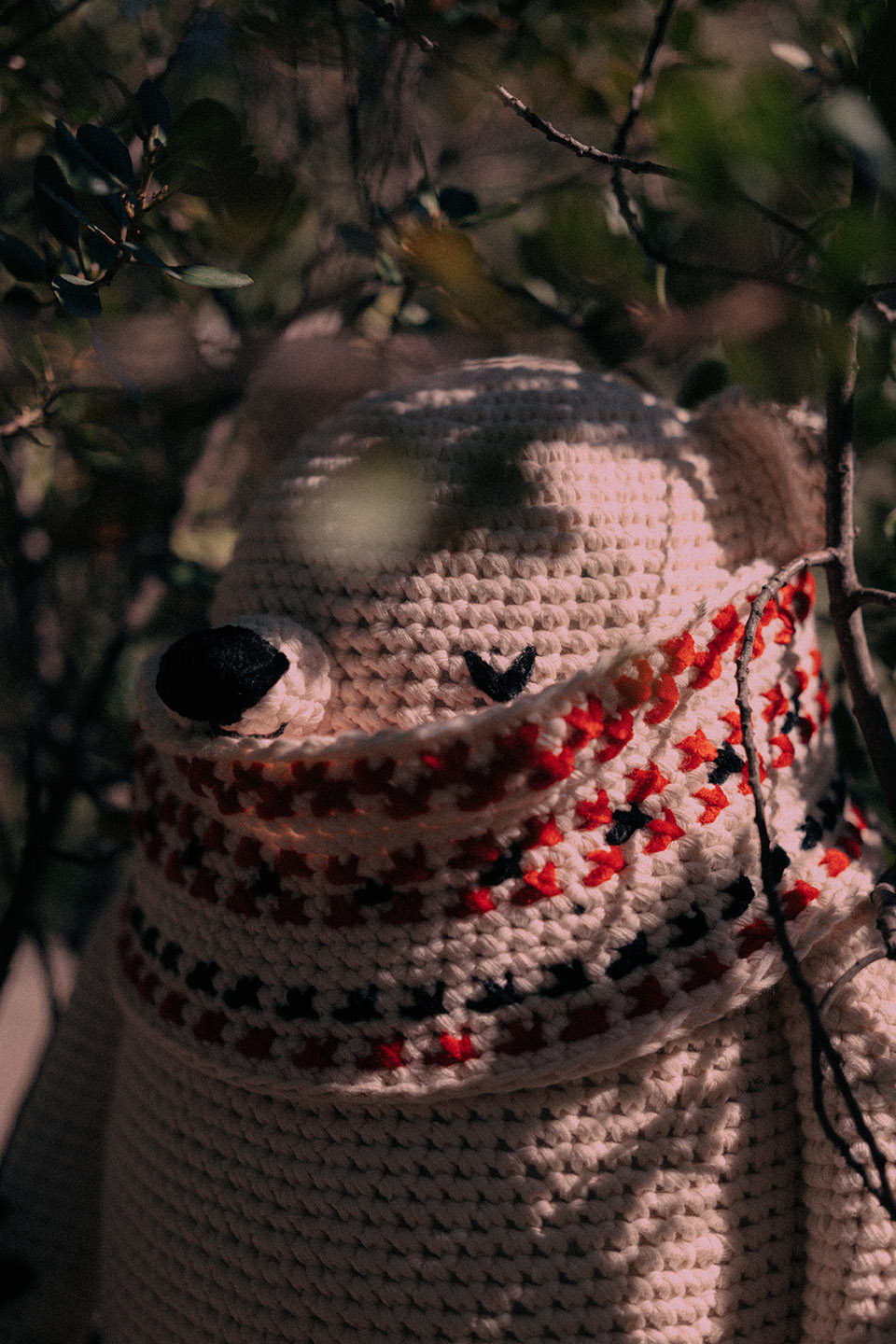
ZOOT: How does Amoami ensure the sustainability and ethical sourcing of the materials used in crafting the bears?
Rafal J. Alcaide: Since the early beginning we have only worked with local suppliers. For example, we cooperate and get our 100% cotton from socially and ethically engaged brands like Scheepjes or Casasol. Additionally, the stuffing for the plush toy and the bags we use for the packaging, they all come from local manufacturers in Spain, so we avoid partnering with partners which are located thousand of miles away. The bags are 100% vegetable origin, made in jute and from @creatingbags.
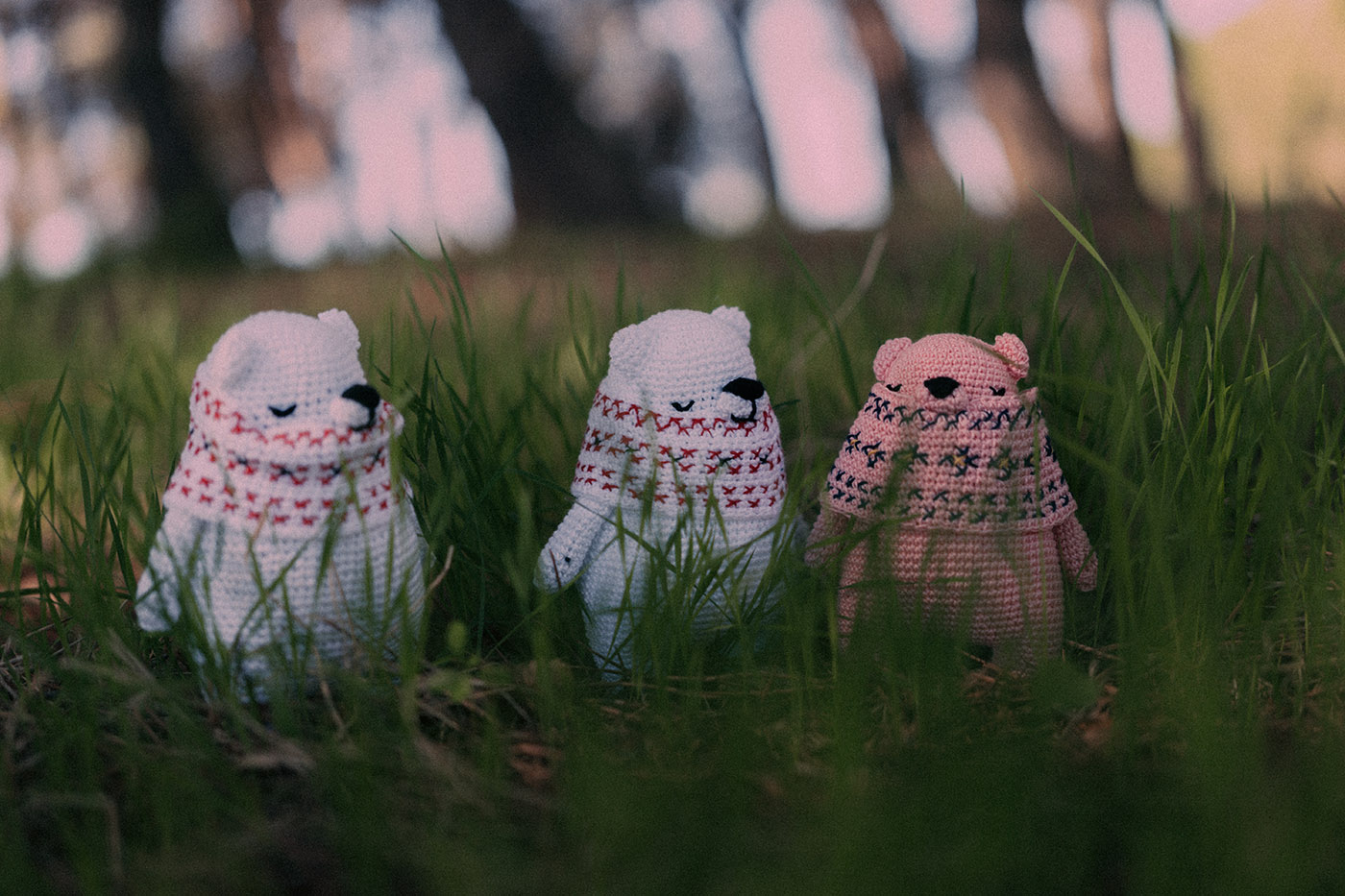
ZOOT: How can people get actively involved and/or contribute to Amoami’s cause?
Rafal J. Alcaide: The best way is by getting an Amoami at www.amoami.eu for a birthday gift or for any special occassion! We believe it’s one of the most meaningful gifts that you can give nowadays! Additionally, we are always looking for new ideas and different kind of creative cooperations. We made a 20-minute documentary documentary a year ago with the help of an amazing team of filmmakers, it can be watched in Spanish-English. Also we would like to do more street art murals like the one @LBWS_168 made in Odessa, so we’d like to get in contact with more artists in many different disciplines. For instance, we are also working on projects with United Ukrainian Ballet, ilustrators and writers to create children books and even some art installations.
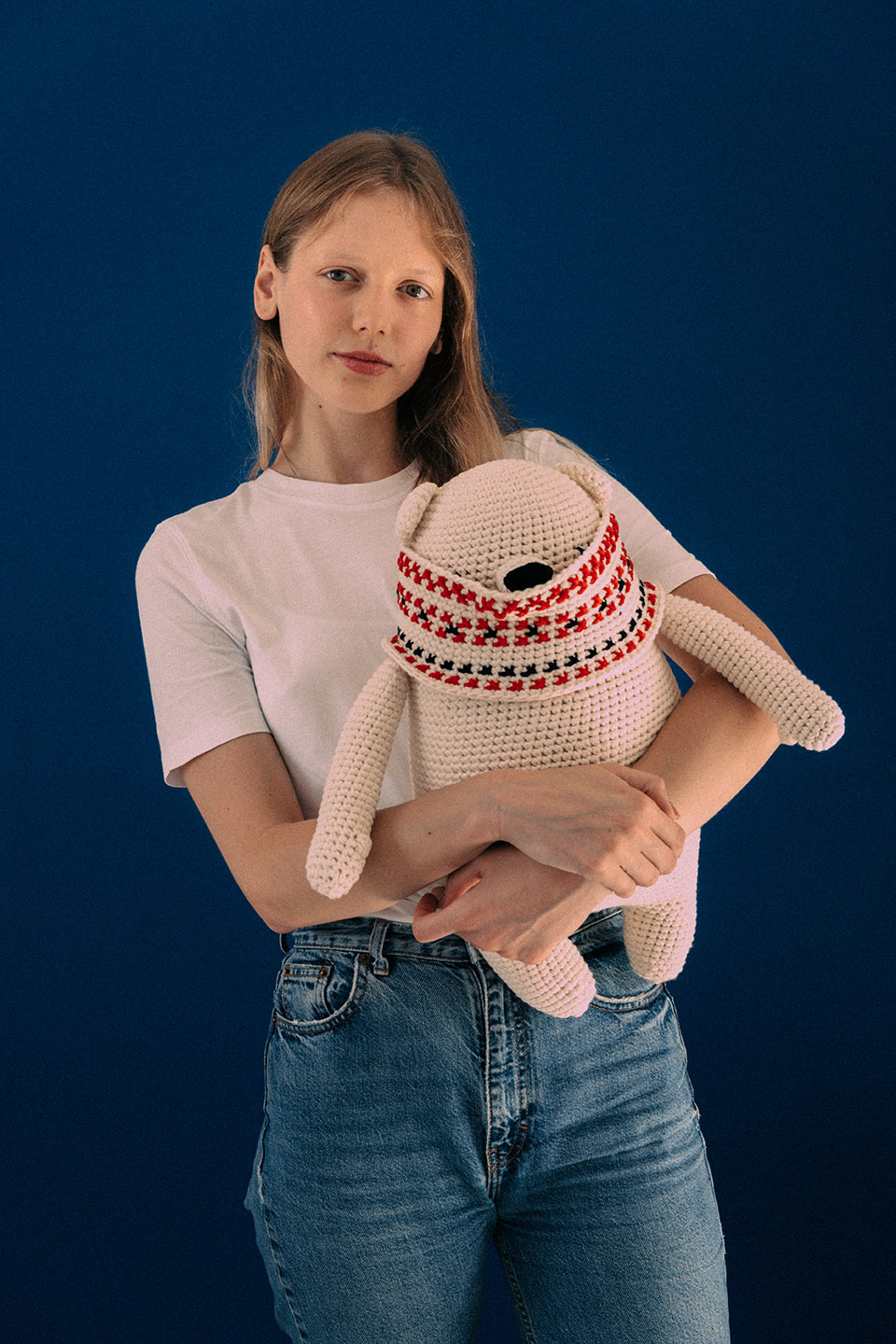
ZOOT: What educational resources or training programs does Amoami offer to empower Ukrainian women in developing their crochet skills?
Rafal J. Alcaide: We organize weekly workshops where the women meet, crochet together, exchange their experiences and make bonds with one another. They connect and provide each other with useful information and resources. This is key for them. It’s also very important the integration with the local community, and during many of these workshops we invite guests and people from the neighbourhood or even companies and enterprises. They become the masters and teach children and adults the art of crochet, which is an amazing way of empowerment and boost their self-steem. Worth mentioning is the therapeutic value of crochet in everybody, but especially in Ukrainian women. Crocheting helps them evade from negative thoughts, and facilitate relaxation while at the same time keeps them busy and focused in a very meticulous and highly skilled handicraft. In the AMOAMI documentary, this can be felt when interviewing some of the refugees.
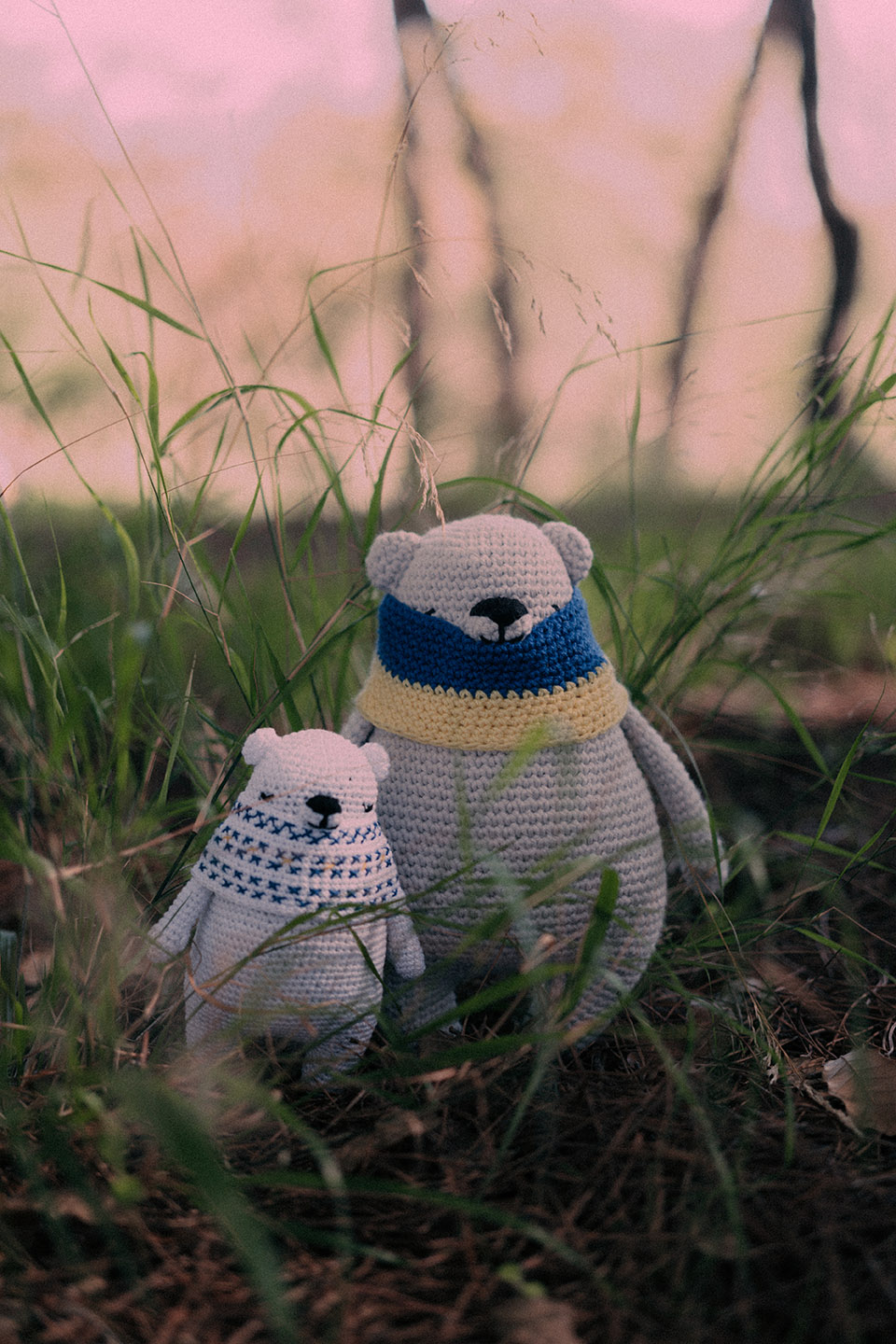
ZOOT: Has Amoami faced any specific challenges or obstacles in its mission?
Rafal J. Alcaide: It was not easy at the beginning. Some people were not keen on joining and didn’t see the therapeutic value in it. This completely changed after a couple of weeks, and since then everyone keeps asking for more material to crochet more and more Amoami bears. It is wonderful! We have some challenges when it comes to funding and financing ourselves. So far, we are self-financed, through the sales of what we crochet. Therefore, in order to grow and engage with more people we would need the trust of investors and donors.
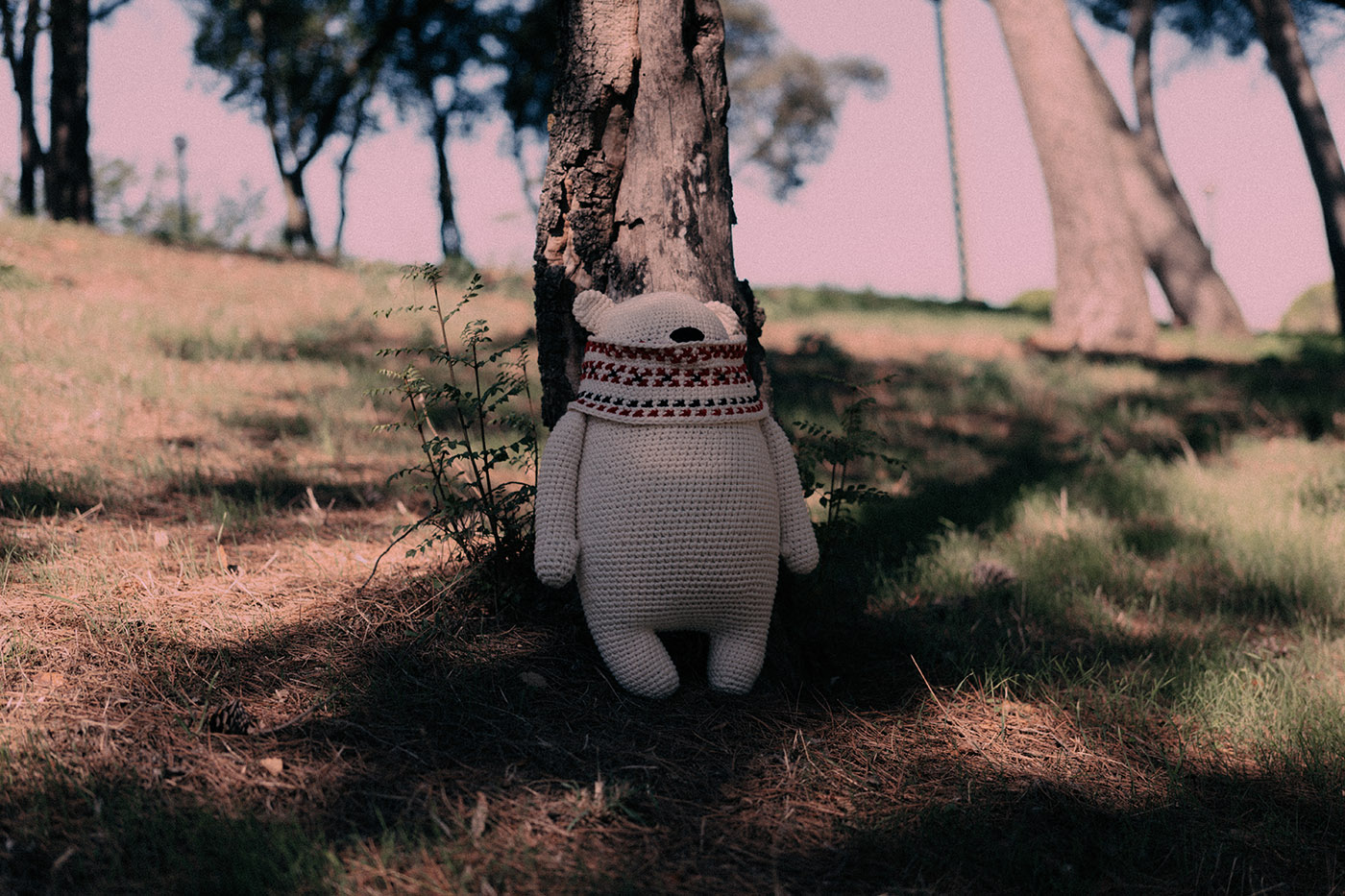
ZOOT: What steps does Amoami take to ensure the protection and promotion of the rights of Ukrainian refugees in their host countries?
Rafal J. Alcaide: We are helping them connect with different associations and activities which are involved in social inclusiong and work integration. We work with institutions where they learn the local language (Spanish, French, English…). One of the side projects we work on is with Puentes Global, providing them with career coaching and trainings in disciplines which are relevant when it comes to look for a permanent job in their host country.
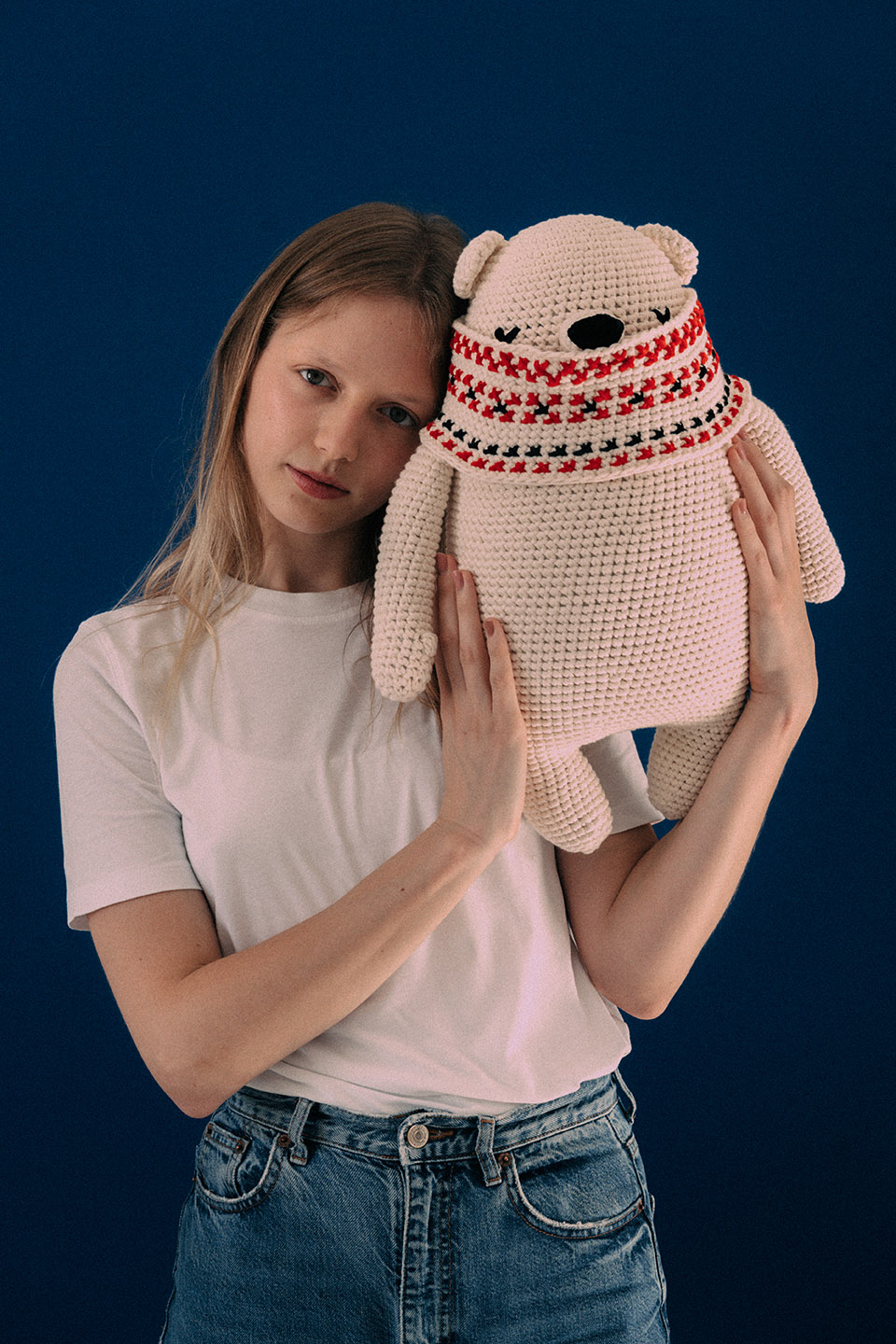
ZOOT: How can Ukrainian citizens get in contact with you so they can be a part of Amoami or join a workshop?
Rafal J. Alcaide: We have had many guests in our workshops from Ukraine and other countries. We need more people to get involved so they can alwasy reach out to us with proposals or any questions through instagram or via email at info@amoami.eu
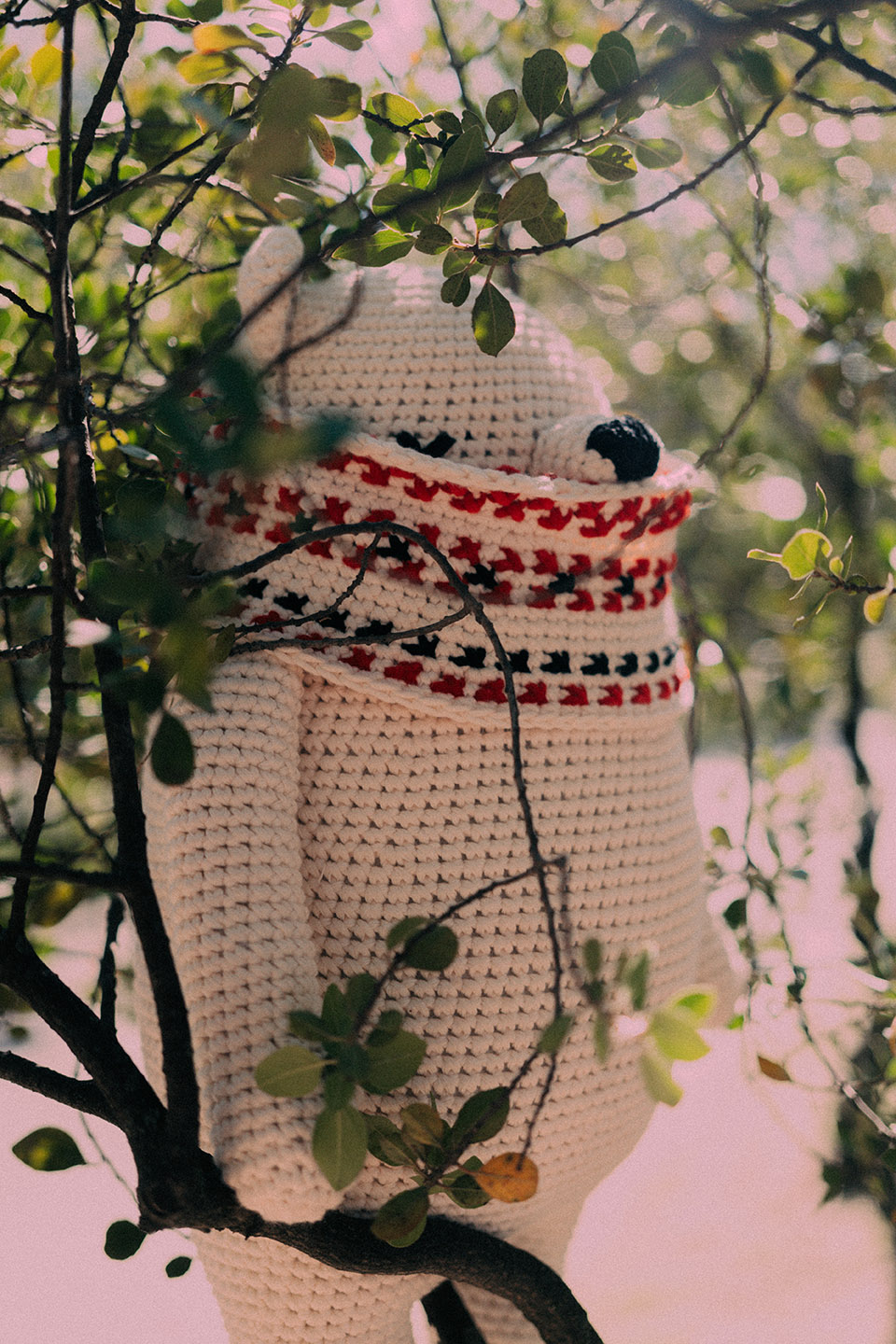
ZOOT: Can you tell us more about Rita Ruiz and your collaboration with her?
Rafal J. Alcaide: Yes, she is a very good friend, but apart from that she is a very talented fashion designer and crochet expert. She created the pattern and made the YouTube training for the Ukrainian crocheters, we wouldnt be here without her! She is also a member of @las_enganchadas and make wonderful activism combining crochet and sustainability.
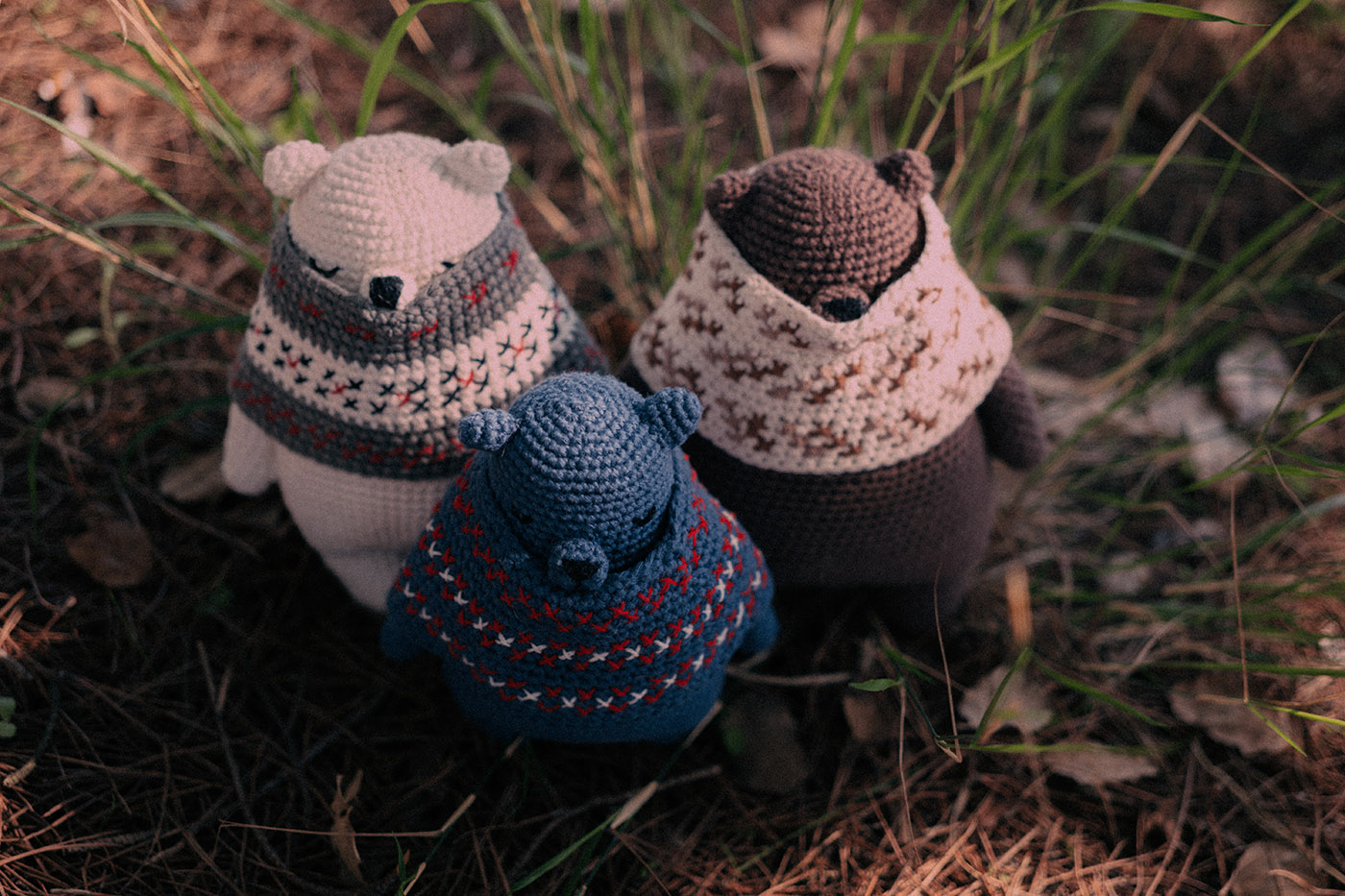
ZOOT: You mentioned you want to expand your network of Amoami above Spain, Switzerland, France and Ukraine, where too?
Rafal J. Alcaide: We would love to have communities in Portugal! But also in Poland, Romania and other countries where the refugee community is quite significant. Our aim is also to make more Amoami models and include other groups of people who go through tough times in their lives. Crochet is therapy!
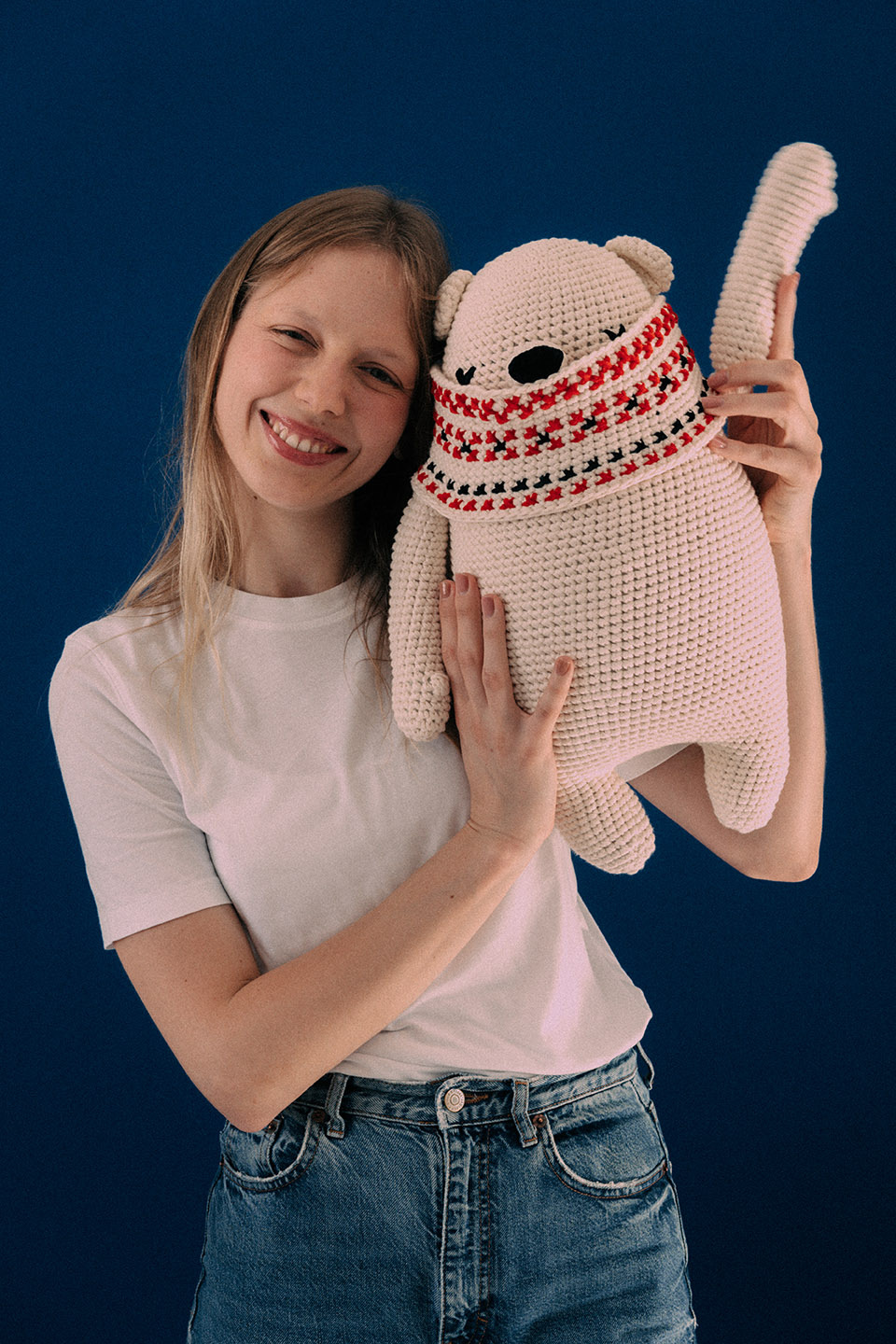
♦♦♦
Amoami believes in the therapeutic benefits of crochet, particularly in alleviating post-traumatic stress disorder (PTSD) and depression. Crochet becomes a means of finding strength and self-worth, undoing emotional knots, and fostering resilience.
It grants these strong Ukrainian women benefits such as: a sense of control that’s provided by a structured activity that empowers individuals and gives them a sense of agency over their actions and environment. A road to mindfulness and the need to stay present, cultivating awareness and reducing the impact of intrusive memories. A manner to express themselves emotionally and help the processing by creating an outlet for expressing, creating, and processing emotions related to the trauma experienced, enabling the release and externalization of difficult feelings. A group that allows them social connection and support by participating in group activities and being part of a community where they can share experiences, receive support, and foster connections with others who have faced similar hardships. Ultimately granting a sense of achievement and self-efficacy through the completion of projects that enhance their self-esteem and self-efficacy, overcoming challenges and witnessing the tangible results of their efforts, fostering a positive sense of self and resilience.
The project also provides financial support for Ukrainian women, all profits going directly back to the crocheters for the purchase of more materials and to help expand the project, helping them integrate into their new host countries and fostering a sense of belonging.
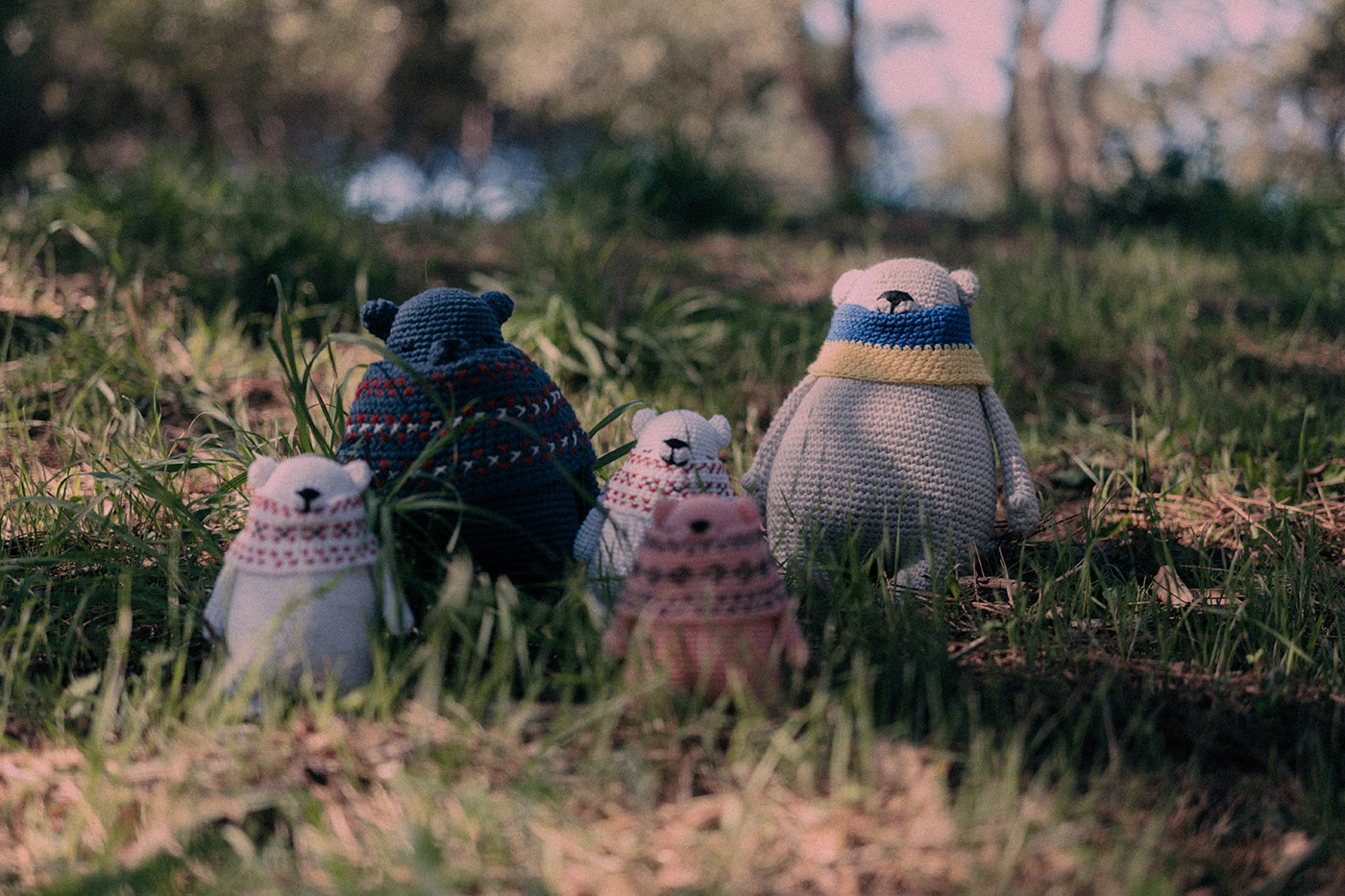
Amoami aims to heal the emotional wounds of Ukrainian citizens scattered across Europe. It serves as a source of salvation and hope, reaching out to those on the brink of despair. Supporting Amoami means joining their journey, spreading joy, courage, and love to those who need it most and contributing to a collective symphony of hope.
Amoami provides a sanctuary for Ukrainian women refugees in Europe, offering solace and warmth. It is a place where their indomitable spirits find comfort, and their stories of resilience and creativity are deeply ingrained.
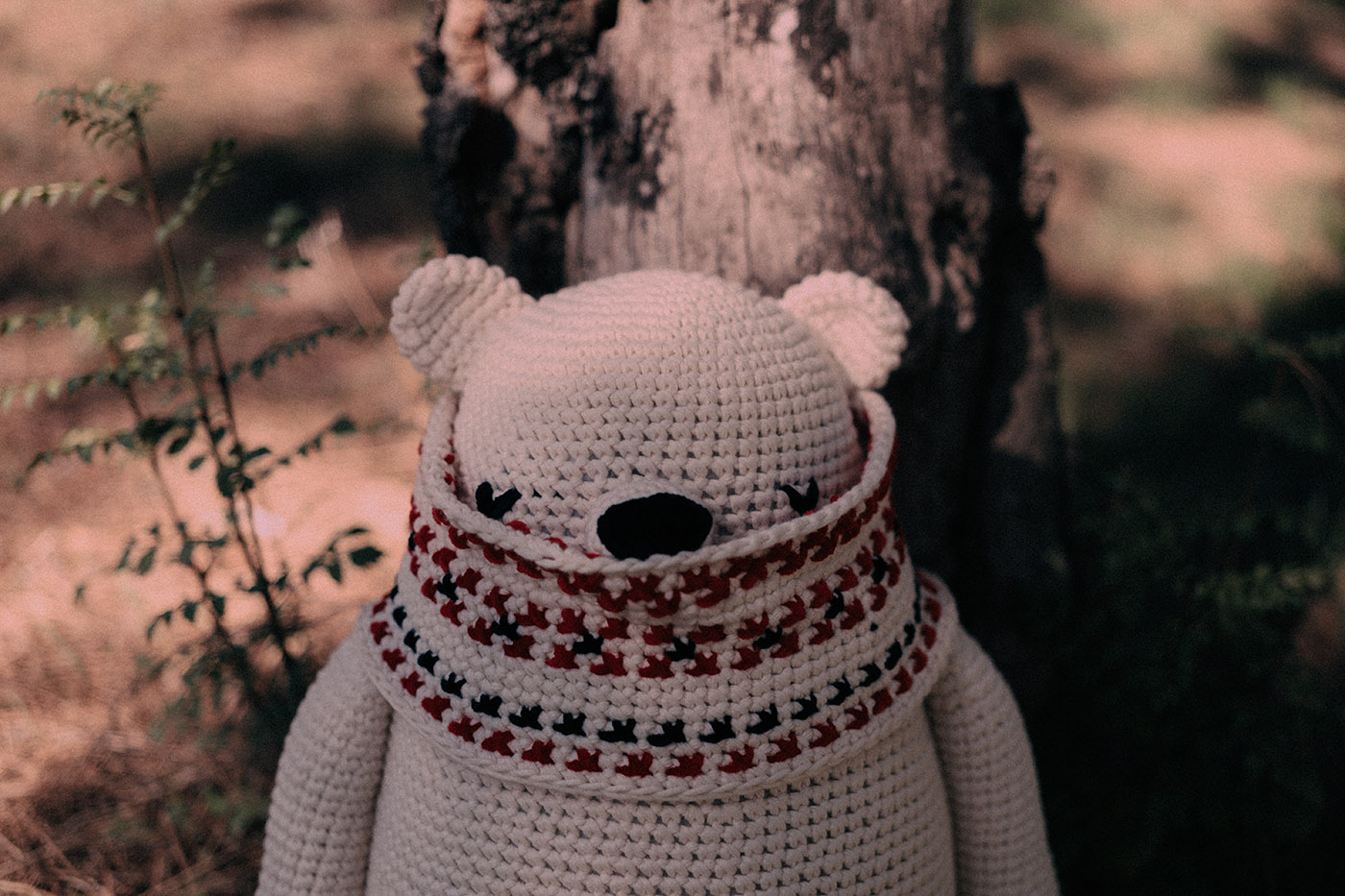
We understood since the very beginning in 2014 what it was going to happen. We had to leave our houses and protect the lives of our little children from the sound of the rockets that exploded near us. I had a newborn son in my arms in 2014. Russia then failed to capture and occupy Kramatorsk, but the threat was constant every day. When in Feb 2022 we woke up to the fact that our house was shaking from the explosions of bombs, we were forced to leave again to save our children. Thanks to the help of caring people and an NGO, I ended up in Spain with my two youngest children. However, I left my parents, husband, and eldest son.
I love crocheting and hope this Amoami bear will bring joy to someone and will tell a story about my home. It also helps me distract myself from sad thoughts and do what I love no matter what.
— Olga, from Kramatorsk, Donetsk
To boot…
The AMOAMI bears come in three diffeent sizes…
You can purchase them on the AMOMI website www.amoami.eu
And follow AMOAMI @amoami.design
Learn and read more about the Ukrainian refugee community here.





